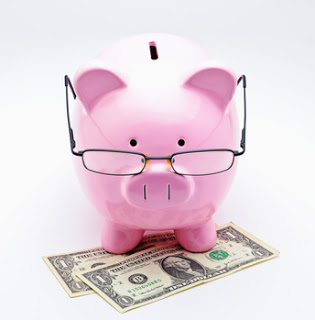This is the second in a three-part series about how you can protect your financial future from the rising costs of healthcare while at the same time improving and protecting your health for little to no financial investment.
In my last post I described how some very simple, even short bouts of regular exercise can have a profound, positive effect on your health. Exercise is free, and produces better health now, which means we will spend less on doctors’ visits and medications now. For that same reason, it provides a big financial payback in the long run.
How does exercise provide long term financial payback?
Any economist will tell you the money you have now is worth more than that same amount of money in the future. You can buy more with it now than you can later because the value of money depreciates. The longer you put off having to pay for any type of healthcare due to illness, the more money you get to keep for yourself and invest into something else of value that will last into the future.
You could even use some of the savings to learn from a professional how to eat better, how to swim, dance, lift weights, or any other activity that will improve the quality of your life, help you to remain self-sufficient, independent, and happy for the long run.
If you’re currently dealing with a health issue, you can still save money with exercise. Exercise can reduce the amount of medication you need and cut down your visits to the doctor both now and in the future. I’ve seen diabetics reduce the amount of insulin they need after establishing a regular exercise program. I’ve seen people on blood pressure, triglyceride and depression medications my antidepressant info reduce or completely eliminate the amount of medications they have to take because of exercise. I’ve watched people reduce the incidents of headaches, wipe out neck and back pain, and eliminate the need to see specialists because of a well-rounded workout program. The money they start saving now and will save in the future is a big deal because of the compounding effect it will have in the bank, and the cost of inflation they saved in the future. The great news is that beginning an exercise program can be as simple as getting out for a walk every day.
Healthy eating reduces risk and effects of disease just like exercise does. Eating healthy includes consuming an abundance of fruits and vegetables, reducing your exposure to processed foods, eating whole grains when you do eat them, and choosing dairy and meats from animals that are treated well (humane), fed well (organic), and hormone free.
Eating in this way increases consumption of vitamins, minerals, phytochemicals, and antioxidants and reduces exposure to harmful chemicals. This in turn decreases your risk for a number of cancers, heart disease, stroke, alzheimers’ disease, diabetes and many other debilitating illnesses. It improves the health of your immune system, brain, eyes, heart, lungs, blood and skin, and all other functioning organs.
It’s a common misconception that we have to spend more money to eat healthier. One of the most effective ways to eat healthier is to make more meals at home. When you make your own meals you’re in control of the quality and types of ingredients going into our food. Here you have a choice as to the quality of protein, the types of oils, the freshness of the plants, the amount and types of chemicals, and how much processing your food goes through.
Not only is it healthier, but eating at home puts money back into your pocket. When comparing a good meal eaten out to a good meal eaten at home, eating at home is always cheaper. On the other hand if you’re comparing a cheap, fast food meal eaten out, to a more expensive but healthier meal made at home, the cost savings can still be significant in the long run because of the long-term health savings I mention above.
In the interim you’ll benefit from feeling better, looking better, sleeping better, and performing better in life when you eat better, which is something you can’t put a price tag on.
Don’t want to spend too much time in the kitchen? You don’t have to. There are plenty of fast, easy healthy ways to cook. I post regular articles on cooking healthy, delicious and fast in this blog. And, for an introduction on how to successfully choose and eat healthy food click to watch the recording of my live-streaming event “Healthy Food Ideas for Busy People”.
I’ll share about how sleep, also free, fits into the economics of healthcare in the final post of this series.


